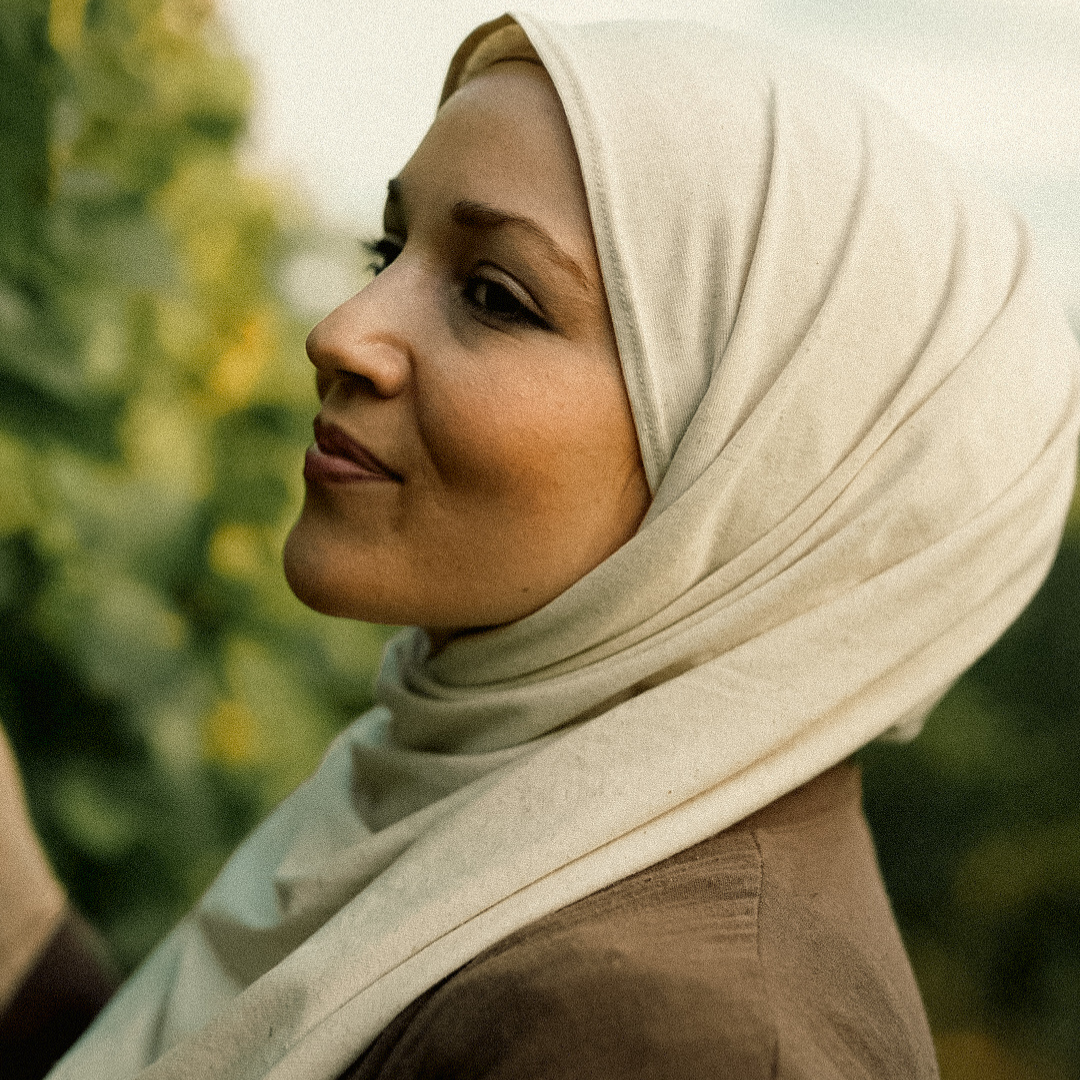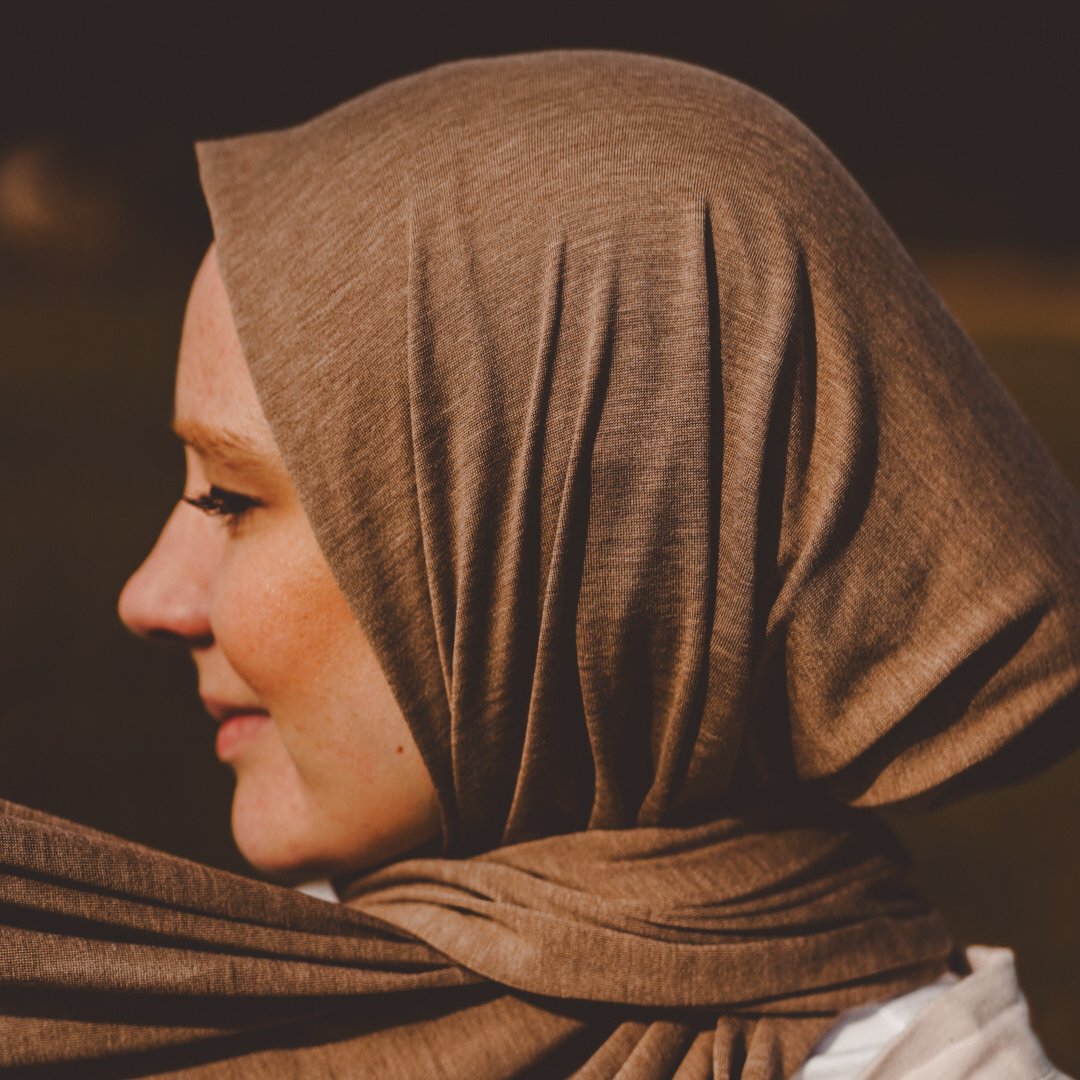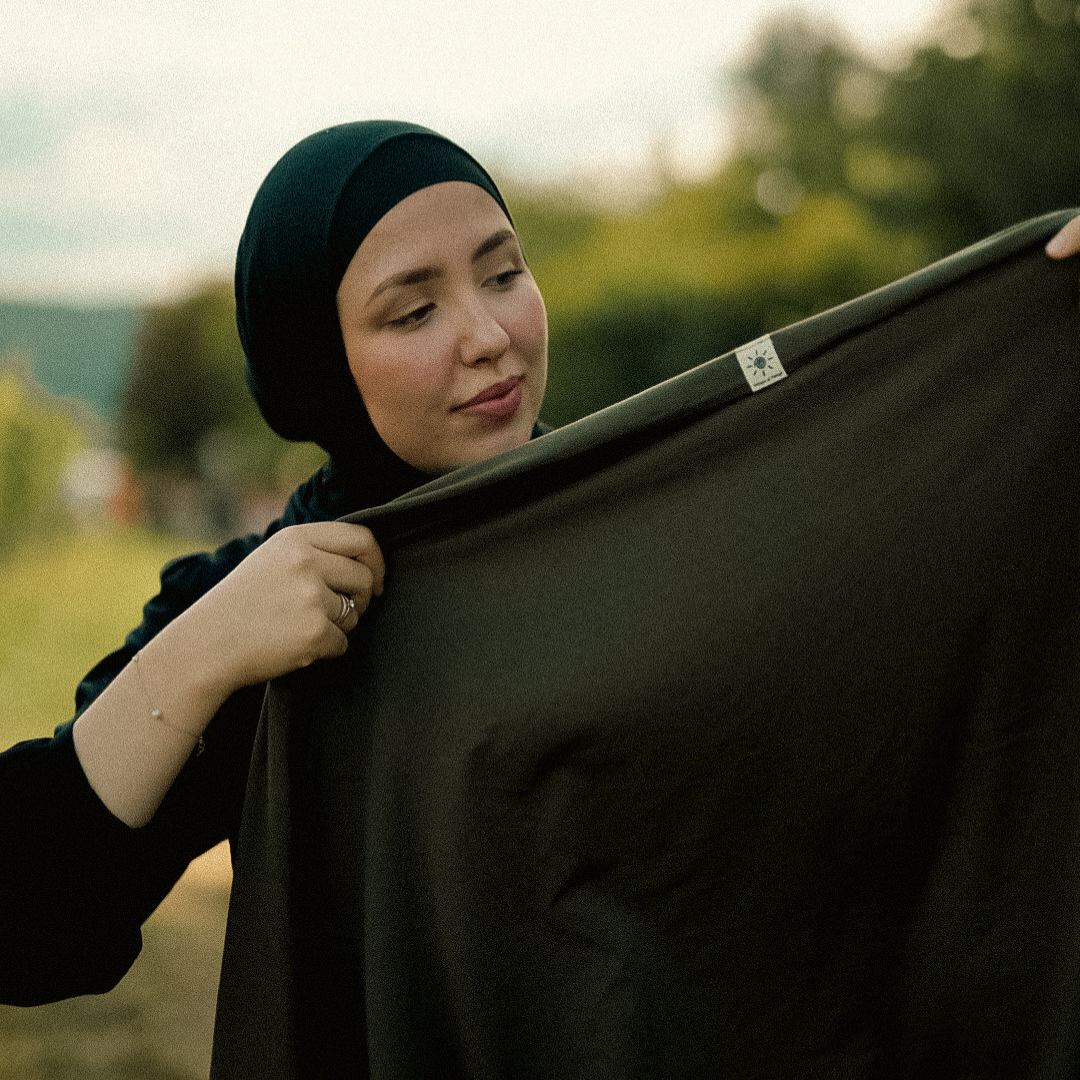The Lunaria wrap abaya falls beautifully when tied tightly in the newer, more advanced models. The colors are simply gorgeous. Size 1 is ideal for slim women, but it is a little too short for those who are 5'6" tall—at least for those who want to wear it ankle-length. The fabric could be slightly thinner, but it is still very cozy and comfortable to wear, especially in winter. Overall, a very beautiful abaya.
Super satisfied as always! Tabea, you do such beautiful work. May Allah reward you!
I feel like a princess in the Lunaria. The fabric isn't too thin, perfect for cooler days.
It feels incredible to wear, as if you have nothing on your head—it feels so light and breathable (and once you've worn a silk hijab, you won't want to wear anything else).
I'm totally thrilled, and the XXL size is great.



